Joseph’s Early Life
Joseph who was the son of Jacob in the bible became the ruler of Egypt and was famous for his ability to interpret dreams. He had 11 brothers and one sister. He had 10 step brothers who were jealous of him. Joseph was very dear to Jacob that’s why he had to suffer a lot. Joseph’s living place was Canaan but later he lived his whole life in Egypt. Joseph was among the young sons of Jacob. He loved his brother Benjamin a lot. Benjamin was also the son of Rachel. Joseph was lucky to have father’s, mother’s and brother’s love but later he remained alone in another country. His whole life is based on patience, love, holiness and honesty.
(Genesis 30:22-24)
Then God remembered Rachel; he listened to her and enabled her to conceive. She became pregnant and gave birth to a son and said, “God has taken away my disgrace.” She named him Joseph, and said, “May the Lord add to me another son.”
(Genesis 35:23-26)
The sons of Leah: Reuben the firstborn of Jacob, Simeon, Levi, Judah, Issachar and Zebulun. Sons of Rachel: Joseph and Benjamin. The sons of Rachel’s servant Bilhah: Dan and Naphtali. Sons of Leah’s servant Zilpah: Gad and Asher. These were the sons of Jacob, who were born to him in Paddan Aram.
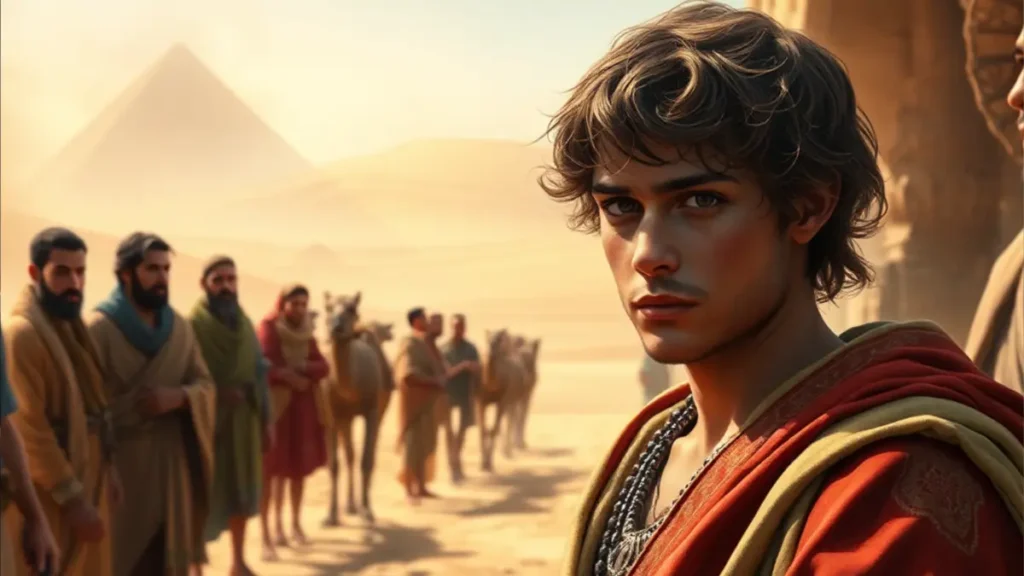
Hate of Joseph’s Brothers
As we all know, Joseph was the beloved son of Jacob. He never eats without Joseph and this shows how deep his love was for his child. Joseph’s brothers were jealous of him and wanted to gain all the intentions of their father. But they act patiently. Once Joseph saw a dream and discussed it with his father. In this dream he saw his brothers bowing before him. After listening to him Jacob told him not to share this dream with his brothers because he knows their intentions. Joseph was innocent and he unconsciously told them.
After getting to know about the dream the intensity of their jealousy got raised. They didn’t want to make the dream true so they decided to kill him. For the purpose of killing they have to bring him with them far from the father’s sight.
They thought of a plan that they will bring Joseph with them after getting father’s permission. They went to him and asked for permission. Jacob didn’t give them permission because they knew about their jealousy. They insisted on him a lot and after that he allowed them with a heavy heart.
(Genesis 37:3-4)
Now Israel loved Joseph more than any of his other sons, because he had been born to him in his old age; and he made an ornate robe for him. When his brothers saw that their father loved him more than any of them, they hated him and could not speak a kind word to him.
(Genesis 37:5-11)
Joseph had a dream, and when he told it to his brothers, they hated him all the more. He said to them, “Listen to this dream I had: We were binding sheaves of grain out in the field when suddenly my sheaf rose and stood upright, while your sheaves gathered around mine and bowed down to it.”
His brothers said to him, “Do you intend to reign over us? Will you actually rule us?” And they hated him all the more because of his dream and what he had said. Then he had another dream, and he told it to his brothers. “Listen,” he said, “I had another dream, and this time the sun and moon and eleven stars were bowing down to me.”
When he told his father as well as his brothers, his father rebuked him and said, “What is this dream you had? Will your mother and I and your brothers actually come and bow down to the ground before you?” His brothers were jealous of him, but his father kept the matter in mind.
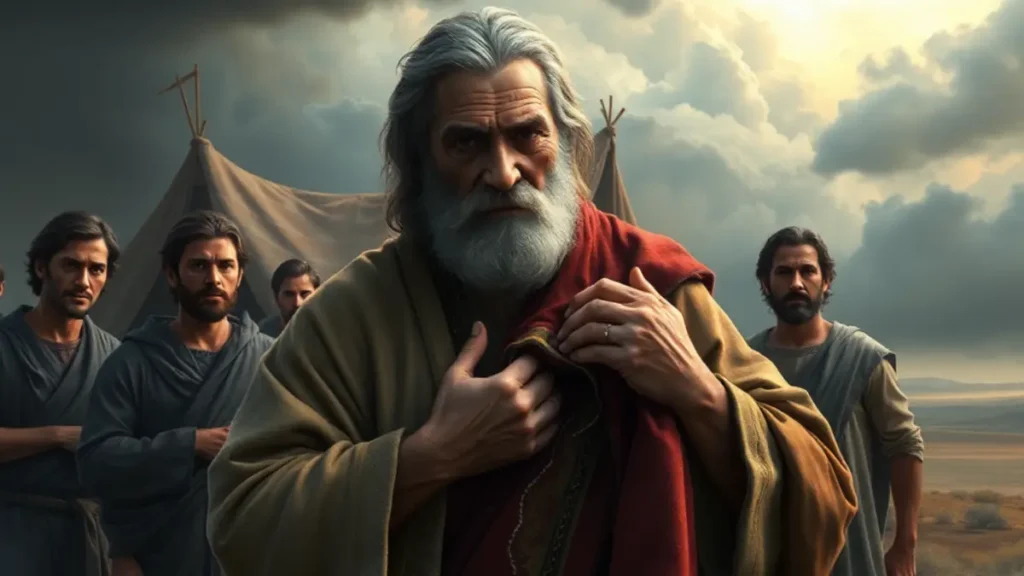
Joseph’s Life in Slavery
They brought him up with them and were close to kill him but a brother stopped them by saying it’s very brutal to kill our brother. They asked him what to do then. Meanwhile a convoy passed through them. They thought of an idea to sell him and in return they will also get some money too.
Everyone agreed. But the problem was if they sold him then what would they say to father. Therefore they took the shirt of Joseph and split some animal blood on it so that they could say he was killed by a wild animal while playing. They go to the father and hand over his shirt filled with blood.
Jacob was shocked at the sight. They told him that they were playing and Joseph remained alone meanwhile a wild animal came near him and ate him and only the shirt remained. Jacob was shattered in many pieces and cried a lot. Joseph was very beloved for him and for many years he remained crying in his son’s remembrance.
(Genesis 37:12-24)
Now his brothers had gone to graze their father’s flocks near Shechem, and Israel said to Joseph, “As you know, your brothers are grazing the flocks near Shechem. Come, I am going to send you to them.”
“Very well,” he replied.So he said to him, “Go and see if all is well with your brothers and with the flocks, and bring word back to me.” Then he sent him off from the Valley of Hebron.
When Joseph arrived at Shechem, a man found him wandering around in the fields and asked him, “What are you looking for?” He replied, “I’m looking for my brothers. Can you tell me where they are grazing their flocks?”
“They have moved on from here,” the man answered. “I heard them say, ‘Let’s go to Dothan.’” So Joseph went after his brothers and found them near Dothan. But they saw him in the distance, and before he reached them, they plotted to kill him.
“Here comes that dreamer!” they said to each other. “Come now, let’s kill him and throw him into one of these cisterns and say that a ferocious animal devoured him. Then we’ll see what comes of his dreams.”
When Reuben heard this, he tried to rescue him from their hands. “Let’s not take his life,” he said. “Don’t shed any blood. Throw him into this cistern here in the wilderness, but don’t lay a hand on him.” Reuben said this to rescue him from them and take him back to his father.
So when Joseph came to his brothers, they stripped him of his robe—the ornate robe he was wearing— and they took him and threw him into the cistern. The cistern was empty; there was no water in it.
(Genesis 37:25-28)
As they sat down to eat their meal, they looked up and saw a caravan of Ishmaelites coming from Gilead. Their camels were loaded with spices, balm and myrrh, and they were on their way to take them down to Egypt.
Judah said to his brothers, “What will we gain if we kill our brother and cover up his blood? Come, let’s sell him to the Ishmaelites and not lay our hands on him; after all, he is our brother, our own flesh and blood.” His brothers agreed. So when the Midianite merchants came by, his brothers pulled Joseph up out of the cistern and sold him for twenty shekels of silver to the Ishmaelites, who took him to Egypt.
(Genesis 37:31-36)
Then they got Joseph’s robe, slaughtered a goat and dipped the robe in the blood. They took the ornate robe back to their father and said, “We found this. Examine it to see whether it is your son’s robe.”He recognized it and said, “It is my son’s robe! Some ferocious animal has devoured him. Joseph has surely been torn to pieces.”
Then Jacob tore his clothes, put on sackcloth and mourned for his son many days. All his sons and daughters came to comfort him, but he refused to be comforted. “No,” he said, “I will continue to mourn until I join my son in the grave.” So his father wept for him. Meanwhile, the Midianites old Joseph in Egypt to Potiphar, one of Pharaoh’s officials, the captain of the guard.
Joseph’s Living Place
Joseph was sold in slavery by the convoy. Potipher saw him and realize he is very beautiful child so he decided to buy him. He buy him and brought in his mansion. Potipher was the minister of Egypt and he also had a wife. Joseph lived his life in his house.
He was too beautiful that potipher’s wife became his fan. She wanted to seduce him. He was in a room and she closed the door with wrong intentions. She was coming close to him to complete the desire but he was pious and righteous servant of God so he denied her. He was going to escape then she hold his shirt. His shirt was torn. Meanwhile her husband came and saw the scene. That woman blamed Joseph while saying that he wanted to seduce her. Potipher went mad at him and presented him in a court.
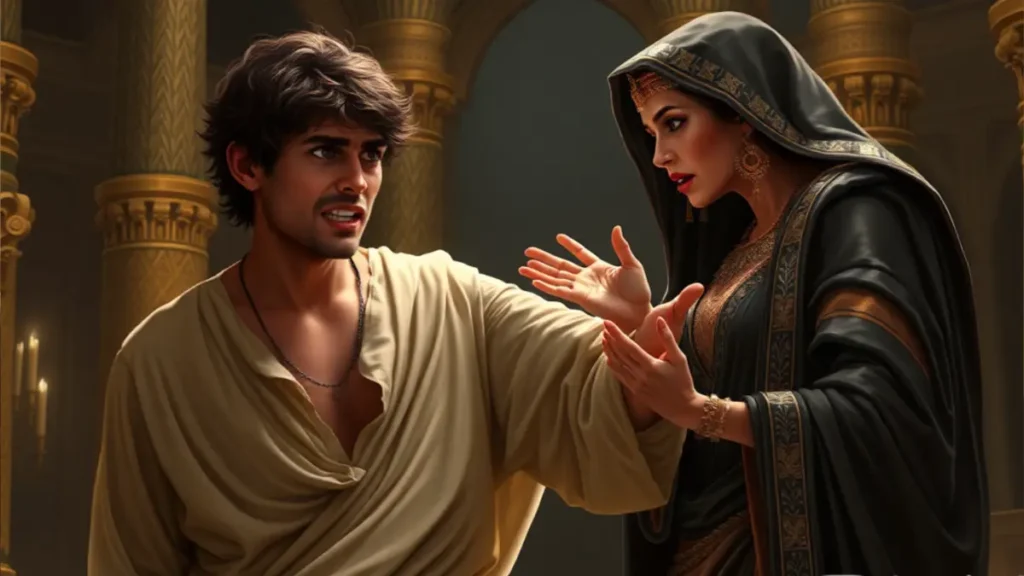
(Genesis 39:1-6)
Now Joseph had been taken down to Egypt. Potiphar, an Egyptian who was one of Pharaoh’s officials, the captain of the guard, bought him from the Ishmaelites who had taken him there. The Lord was with Joseph so that he prospered, and he lived in the house of his Egyptian master. When his master saw that the Lord was with him and that the Lord gave him success in everything he did, Joseph found favor in his eyes and became his attendant.
Potiphar put him in charge of his household, and he entrusted to his care everything he owned. From the time he put him in charge of his household and of all that he owned, the Lord blessed the household of the Egyptian because of Joseph. The blessing of the Lord was on everything Potiphar had, both in the house and in the field. So Potiphar left everything he had in Joseph’s care; with Joseph in charge, he did not concern himself with anything except the food he ate. Now Joseph was well-built and handsome,
(Genesis 39:7-12)
and after a while his master’s wife took notice of Joseph and said, “Come to bed with me!” But he refused. “With me in charge,” he told her, “my master does not concern himself with anything in the house; everything he owns he has entrusted to my care. No one is greater in this house than I am. My master has withheld nothing from me except you, because you are his wife. How then could I do such a wicked thing and sin against God?” And though she spoke to Joseph day after day, he refused to go to bed with her or even be with her.
One day he went into the house to attend to his duties, and none of the household servants was inside. She caught him by his cloak and said, “Come to bed with me!” But he left his cloak in her hand and ran out of the house.
(Genesis 39:13-20)
When she saw that he had left his cloak in her hand and had run out of the house, she called her household servants. “Look,” she said to them, “this Hebrew has been brought to us to make sport of us! He came in here to sleep with me, but I screamed. When he heard me scream for help, he left his cloak beside me and ran out of the house.”
She kept his cloak beside her until his master came home. Then she told him this story: “That Hebrew slave you brought us came to me to make sport of me. But as soon as I screamed for help, he left his cloak beside me and ran out of the house.”
When his master heard the story his wife told him, saying, “This is how your slave treated me,” he burned with anger. Joseph’s master took him and put him in prison, the place where the king’s prisoners were confined. But while Joseph was there in the prison,
Imprisonment of Joseph
Joseph was considered as a wrong person that’s why he was imprisoned. In the cell there were also two other people who were imprisoned. Once they saw dreams and he interpreted them. According to the interpretation one person will be killed while the other will become the king’s special person. His interpretations came true and people started to know him as a dream interpreter.
(Genesis 39:21-23)
the Lord was with him; he showed him kindness and granted him favor in the eyes of the prison warden. So the warden put Joseph in charge of all those held in the prison, and he was made responsible for all that was done there. The warden paid no attention to anything under Joseph’s care, because the Lord was with Joseph and gave him success in whatever he did.
(Genesis 40:1-8)
Some time later, the cupbearer and the baker of the king of Egypt offended their master, the king of Egypt. Pharaoh was angry with his two officials, the chief cupbearer and the chief baker, and put them in custody in the house of the captain of the guard, in the same prison where Joseph was confined. The captain of the guard assigned them to Joseph, and he attended them.
After they had been in custody for some time, each of the two men—the cupbearer and the baker of the king of Egypt, who were being held in prison—had a dream the same night, and each dream had a meaning of its own.
When Joseph came to them the next morning, he saw that they were dejected. So he asked Pharaoh’s officials who were in custody with him in his master’s house, “Why do you look so sad today?”
“We both had dreams,” they answered, “but there is no one to interpret them.” Then Joseph said to them, “Do not interpretations belong to God? Tell me your dreams.”

(Genesis 40:9-23)
So the chief cupbearer told Joseph his dream. He said to him, “In my dream I saw a vine in front of me, and on the vine were three branches. As soon as it budded, it blossomed, and its clusters ripened into grapes. Pharaoh’s cup was in my hand, and I took the grapes, squeezed them into Pharaoh’s cup and put the cup in his hand.”
“This is what it means,” Joseph said to him. “The three branches are three days. Within three days Pharaoh will lift up your head and restore you to your position, and you will put Pharaoh’s cup in his hand, just as you used to do when you were his cupbearer. But when all goes well with you, remember me and show me kindness; mention me to Pharaoh and get me out of this prison. I was forcibly carried off from the land of the Hebrews, and even here I have done nothing to deserve being put in a dungeon.”
When the chief baker saw that Joseph had given a favorable interpretation, he said to Joseph, “I too had a dream: On my head were three baskets of bread. In the top basket were all kinds of baked goods for Pharaoh, but the birds were eating them out of the basket on my head…….”
Interpretation of Pharaoh’s Dream
Pharaoh, who was the king of Egypt once saw a dream which troubled him so much. He asked many people to interpret the dream but all efforts were in vain. There was also the person whose dream was interpreted by Joseph.
He told the pharaoh about Joseph and his ability to interpret the dreams. Pharaoh ordered to bring him to court. When he came there pharaoh told him his dream which troubled him a lot. Joseph interpreted him by saying that Egypt will face 7 years of prosperity and 7 years of great famine. Pharaoh appointed him as a minister and handed over the responsibility to plan and face famine.
(Genesis 41:1-8)
When two full years had passed, Pharaoh had a dream: He was standing by the Nile, when out of the river there came up seven cows, sleek and fat, and they grazed among the reeds. After them, seven other cows, ugly and gaunt, came up out of the Nile and stood beside those on the riverbank. And the cows that were ugly and gaunt ate up the seven sleek, fat cows. Then Pharaoh woke up.
He fell asleep again and had a second dream: Seven heads of grain, healthy and good, were growing on a single stalk. After them, seven other heads of grain sprouted—thin and scorched by the east wind. The thin heads of grain swallowed up the seven healthy, full heads. Then Pharaoh woke up; it had been a dream.
In the morning his mind was troubled, so he sent for all the magicians and wise men of Egypt. Pharaoh told them his dreams, but no one could interpret them for him.
(Genesis 41:14-24)
So Pharaoh sent for Joseph, and he was quickly brought from the dungeon. When he had shaved and changed his clothes, he came before Pharaoh.
Pharaoh said to Joseph, “I had a dream, and no one can interpret it. But I have heard it said of you that when you hear a dream you can interpret it.” “I cannot do it,” Joseph replied to Pharaoh, “but God will give Pharaoh the answer he desires.”
Then Pharaoh said to Joseph, “In my dream I was standing on the bank of the Nile, when out of the river there came up seven cows, fat and sleek, and they grazed among the reeds. After them, seven other cows came up—scrawny and very ugly and lean. I had never seen such ugly cows in all the land of Egypt. The lean, ugly cows ate up the seven fat cows that came up first. But even after they ate them, no one could tell that they had done so; they looked just as ugly as before. Then I woke up.
“In my dream I saw seven heads of grain, full and good, growing on a single stalk. After them, seven other heads sprouted—withered and thin and scorched by the east wind. The thin heads of grain swallowed up the seven good heads. I told this to the magicians, but none of them could explain it to me.”
(Genesis 41:25-36)
Then Joseph said to Pharaoh, “The dreams of Pharaoh are one and the same. God has revealed to Pharaoh what he is about to do. The seven good cows are seven years, and the seven good heads of grain are seven years; it is one and the same dream. The seven lean, ugly cows that came up afterward are seven years, and so are the seven worthless heads of grain scorched by the east wind: They are seven years of famine.
“It is just as I said to Pharaoh: God has shown Pharaoh what he is about to do. Seven years of great abundance are coming throughout the land of Egypt, but seven years of famine will follow them. Then all the abundance in Egypt will be forgotten, and the famine will ravage the land. The abundance in the land will not be remembered, because the famine that follows it will be so severe. The reason the dream was given to Pharaoh in two forms is that the matter has been firmly decided by God, and God will do it soon.
“And now let Pharaoh look for a discerning and wise man and put him in charge of the land of Egypt. Let Pharaoh appoint commissioners over the land to take a fifth of the harvest of Egypt during the seven years of abundance. They should collect all the food of these good years that are coming and store up the grain under the authority of Pharaoh, to be kept in the cities for food. This food should be held in reserve for the country, to be used during the seven years of famine that will come upon Egypt, so that the country may not be ruined by the famine.”
As Ruler of Egypt
Joseph took the responsibility and ordered people to grow the crops. His servants did the same on land. \joseph collected all the grains and stored them. I was about the journey of 7 years and he collected grains equal to the sea sand. The time came when prosperity ended and famine started.
People got food shortages and land was not able to grow any crop. Famine covered many places and the grain was only present in the storage of Joseph. Joseph’s interpretation came true that is why the pharaoh gave him a new name.
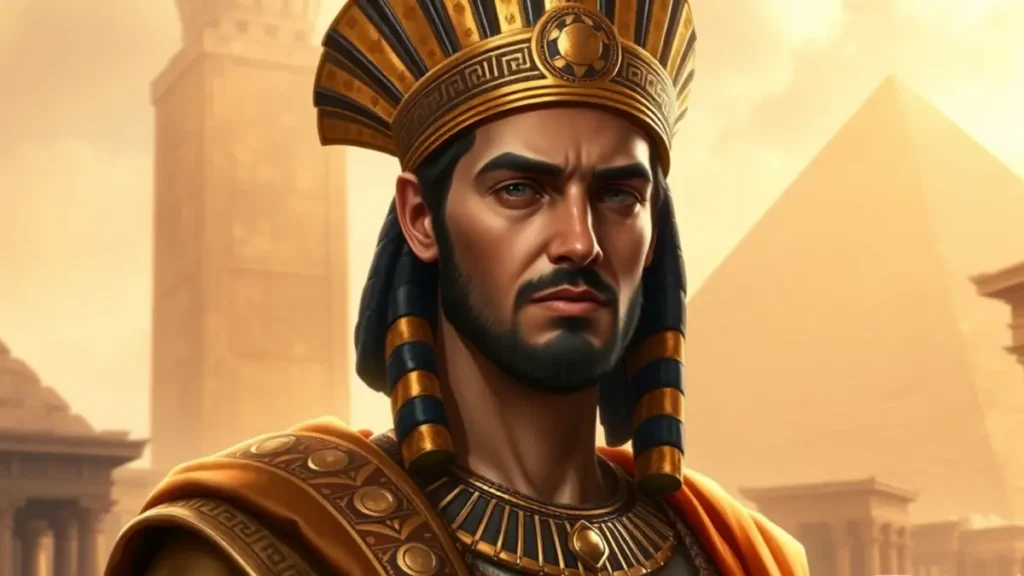
(Genesis 41:37-44)
The plan seemed good to Pharaoh and to all his officials. So Pharaoh asked them, “Can we find anyone like this man, one in whom is the spirit of God?” Then Pharaoh said to Joseph, “Since God has made all this known to you, there is no one so discerning and wise as you. You shall be in charge of my palace, and all my people are to submit to your orders. Only with respect to the throne will I be greater than you.”
Joseph in Charge of Egypt
So Pharaoh said to Joseph, “I hereby put you in charge of the whole land of Egypt.” Then Pharaoh took his signet ring from his finger and put it on Joseph’s finger. He dressed him in robes of fine linen and put a gold chain around his neck. He had him ride in a chariot as his second-in-command, and people shouted before him, “Make way!” Thus he put him in charge of the whole land of Egypt.
Then Pharaoh said to Joseph, “I am Pharaoh, but without your word no one will lift hand or foot in all Egypt.”
(Genesis 41:45-49)
Pharaoh gave Joseph the name Zaphenath-Paneah and gave him Asenath daughter of Potiphera, priest of On, to be his wife. And Joseph went throughout the land of Egypt.
Joseph was thirty years old when he entered the service of Pharaoh king of Egypt. And Joseph went out from Pharaoh’s presence and traveled throughout Egypt. During the seven years of abundance the land produced plentifully. Joseph collected all the food produced in those seven years of abundance in Egypt and stored it in the cities. In each city he put the food grown in the fields surrounding it. Joseph stored up huge quantities of grain, like the sand of the sea; it was so much that he stopped keeping records because it was beyond measure.
(Genesis 41:53-57)
The seven years of abundance in Egypt came to an end, and the seven years of famine began, just as Joseph had said. There was famine in all the other lands, but in the whole land of Egypt there was food. When all Egypt began to feel the famine, the people cried to Pharaoh for food. Then Pharaoh told all the Egyptians, “Go to Joseph and do what he tells you.”
When the famine had spread over the whole country, Joseph opened all the storehouses and sold grain to the Egyptians, for the famine was severe throughout Egypt. And all the world came to Egypt to buy grain from Joseph, because the famine was severe everywhere.
Arrival of Jacob’s Sons in Egypt
Joseph’s family also caught in famine and for food his brothers go to egypt. Joseph saw them and recognized him but his younger brother Benjamin was not present so to meet him he ordered them to take his little brother with them because he wanted to make sure that they are a spy or honest people.
He gave them grain and stopped Simeon with him so that his brothers could bring Benjamin to him. They left simeon with joseph and come to his father with grains. They were very ashamed of what they did with Joseph because they are thinking they will lose his brothers just because they did wrong with joseph.
(Genesis 42:1-7)
When Jacob learned that there was grain in Egypt, he said to his sons, “Why do you just keep looking at each other?” He continued, “I have heard that there is grain in Egypt. Go down there and buy some for us, so that we may live and not die.”
Then ten of Joseph’s brothers went down to buy grain from Egypt. But Jacob did not send Benjamin, Joseph’s brother, with the others, because he was afraid that harm might come to him. So Israel’s sons were among those who went to buy grain, for there was famine in the land of Canaan also.
Now Joseph was the governor of the land, the person who sold grain to all its people. So when Joseph’s brothers arrived, they bowed down to him with their faces to the ground. As soon as Joseph saw his brothers, he recognized them, but he pretended to be a stranger and spoke harshly to them. “Where do you come from?” he asked. “From the land of Canaan,” they replied, “to buy food.”
(Genesis 42:18-25)
On the third day, Joseph said to them, “Do this and you will live, for I fear God: If you are honest men, let one of your brothers stay here in prison, while the rest of you go and take grain back for your starving households. But you must bring your youngest brother to me, so that your words may be verified and that you may not die.” This they proceeded to do.
They said to one another, “Surely we are being punished because of our brother. We saw how distressed he was when he pleaded with us for his life, but we would not listen; that’s why this distress has come on us.”
Reuben replied, “Didn’t I tell you not to sin against the boy? But you wouldn’t listen! Now we must give an accounting for his blood.” They did not realize that Joseph could understand them, since he was using an interpreter.
He turned away from them and began to weep, but then came back and spoke to them again. He had Simeon taken from them and bound before their eyes. Joseph gave orders to fill their bags with grain, to put each man’s silver back in his sack, and to give them provisions for their journey. After this was done for them,
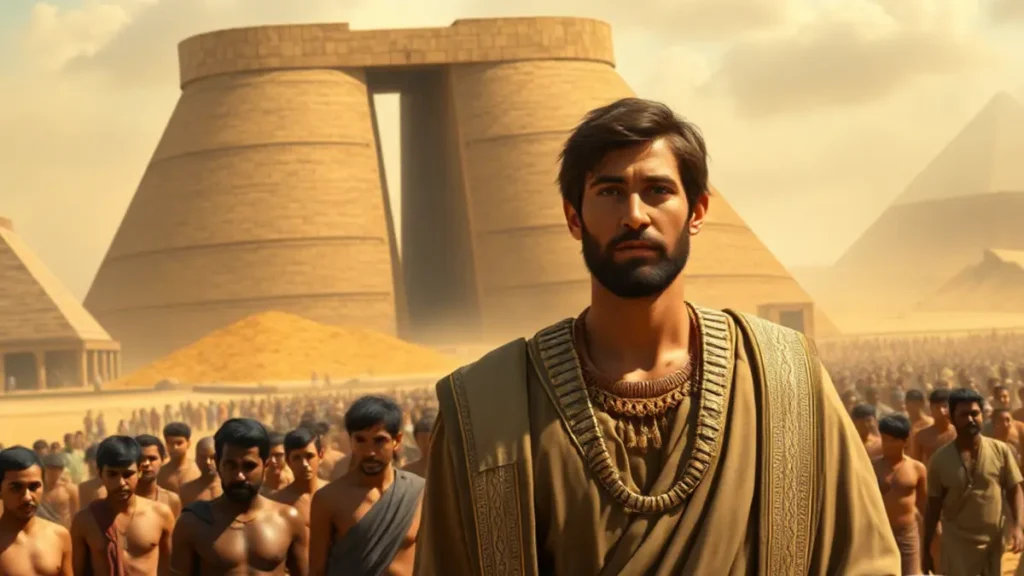
(Genesis 42:29-38)
When they came to their father Jacob in the land of Canaan, they told him all that had happened to them. They said, “The man who is lord over the land spoke harshly to us and treated us as though we were spying on the land. But we said to him, ‘We are honest men; we are not spies. We were twelve brothers, sons of one father. One is no more, and the youngest is now with our father in Canaan.’
“Then the man who is lord over the land said to us, ‘This is how I will know whether you are honest men: Leave one of your brothers here with me, and take food for your starving households and go. But bring your youngest brother to me so I will know that you are not spies but honest men. Then I will give your brother back to you, and you can trade in the land.’”
As they were emptying their sacks, there in each man’s sack was his pouch of silver! When they and their father saw the money pouches, they were frightened. Their father Jacob said to them, “You have deprived me of my children. Joseph is no more and Simeon is no more, and now you want to take Benjamin. Everything is against me!”
Then Reuben said to his father, “You may put both of my sons to death if I do not bring him back to you. Entrust him to my care, and I will bring him back.” But Jacob said, “My son will not go down there with you; his brother is dead and he is the only one left. If harm comes to him on the journey you are taking, you will bring my gray head down to the grave in sorrow.”
Jacob’s family Move to Egypt
All his brothers and Jacob went to Egypt to confirm their honesty and bring their brother. When they reached there Joseph was standing. He saw his father and started to weep. Jacob also recognized him and they wept loudly. At that time his identity was revealed to all of them.
Jacob was much happier to see his lost son. His brothers were very ashamed and asked for forgiveness and started bowing before him. He stopped them and said that I’m not your Lord but are brothers. He forgave them and settled his brothers and father in the egypt.
(Genesis 45:16-28)
When the news reached Pharaoh’s palace that Joseph’s brothers had come, Pharaoh and all his officials were pleased. Pharaoh said to Joseph, “Tell your brothers, ‘Do this: Load your animals and return to the land of Canaan, and bring your father and your families back to me. I will give you the best of the land of Egypt and you can enjoy the fat of the land.’
“You are also directed to tell them, ‘Do this: Take some carts from Egypt for your children and your wives, and get your father and come. Never mind about your belongings, because the best of all Egypt will be yours.’”
So the sons of Israel did this. Joseph gave them carts, as Pharaoh had commanded, and he also gave them provisions for their journey. To each of them he gave new clothing, but to Benjamin he gave three hundred shekels of silver and five sets of clothes. And this is what he sent to his father: ten donkeys loaded with the best things of Egypt, and ten female donkeys loaded with grain and bread and other provisions for his journey. Then he sent his brothers away, and as they were leaving he said to them, “Don’t quarrel on the way!”
So they went up out of Egypt and came to their father Jacob in the land of Canaan. They told him, “Joseph is still alive! In fact, he is ruler of all Egypt.” Jacob was stunned; he did not believe them. But when they told him everything Joseph had said to them, and when he saw the carts Joseph had sent to carry him back, the spirit of their father Jacob revived. And Israel said, “I’m convinced! My son Joseph is still alive. I will go and see him before I die.”
(Genesis 46:1-7)
So Israel set out with all that was his, and when he reached Beersheba, he offered sacrifices to the God of his father Isaac. And God spoke to Israel in a vision at night and said, “Jacob! Jacob!” “Here I am,” he replied.
“I am God, the God of your father,” he said. “Do not be afraid to go down to Egypt, for I will make you into a great nation there. I will go down to Egypt with you, and I will surely bring you back again. And Joseph’s own hand will close your eyes.”
Then Jacob left Beersheba, and Israel’s sons took their father Jacob and their children and their wives in the carts that Pharaoh had sent to transport him. So Jacob and all his offspring went to Egypt, taking with them their livestock and the possessions they had acquired in Canaan. Jacob brought with him to Egypt his sons and grandsons and his daughters and granddaughters—all his offspring.
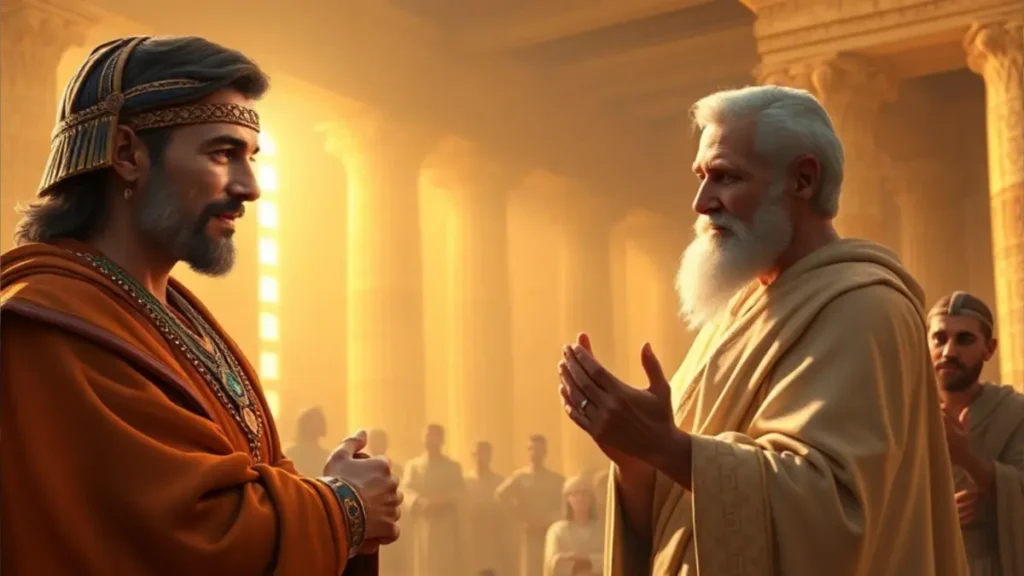
(Genesis 46:26-30)
All those who went to Egypt with Jacob—those who were his direct descendants, not counting his sons’ wives—numbered sixty-six persons. With the two sons who had been born to Joseph in Egypt, the members of Jacob’s family, which went to Egypt, were seventy in all.
Now Jacob sent Judah ahead of him to Joseph to get directions to Goshen. When they arrived in the region of Goshen, Joseph had his chariot made ready and went to Goshen to meet his father Israel. As soon as Joseph appeared before him, he threw his arms around his father and wept for a long time. Israel said to Joseph, “Now I am ready to die, since I have seen for myself that you are still alive.”
Joseph’s Leadership And Death
Joseph became very successful and brought all the lands except some. As he had grains so people sold their animals to him to get grains. After that people also sold their properties just to get the food because famine was severe.
Joseph became the leader and all the lands were in his hands. He ruled his remaining life as the minister and ruler of Egypt. His death happened when he was 110 years old. He was buried in Egypt but later in Canaan with his forefathers Abraham, Isaac and Jacob.
(Genesis 47:11-12)
So Joseph settled his father and his brothers in Egypt and gave them property in the best part of the land, the district of Rameses, as Pharaoh directed. Joseph also provided his father and his brothers and all his father’s household with food, according to the number of their children.
(Genesis 47:13-26)
There was no food, however, in the whole region because the famine was severe; both Egypt and Canaan wasted away because of the famine. Joseph collected all the money that was to be found in Egypt and Canaan in payment for the grain they were buying, and he brought it to Pharaoh’s palace. When the money of the people of Egypt and Canaan was gone, all Egypt came to Joseph and said, “Give us food. Why should we die before your eyes? Our money is all gone.”
“Then bring your livestock,” said Joseph. “I will sell you food in exchange for your livestock, since your money is gone.” So they brought their livestock to Joseph, and he gave them food in exchange for their horses, their sheep and goats, their cattle and donkeys. And he brought them through that year with food in exchange for all their livestock…..”
(Genesis 50:15-26)
When Joseph’s brothers saw that their father was dead, they said, “What if Joseph holds a grudge against us and pays us back for all the wrongs we did to him?” So they sent word to Joseph, saying, “Your father left these instructions before he died: ‘This is what you are to say to Joseph: I ask you to forgive your brothers the sins and the wrongs they committed in treating you so badly.’ Now please forgive the sins of the servants of the God of your father.” When their message came to him, Joseph wept.
His brothers then came and threw themselves down before him. “We are your slaves,” they said. But Joseph said to them, “Don’t be afraid. Am I in the place of God? You intended to harm me, but God intended it for good to accomplish what is now being done, the saving of many lives. So then, don’t be afraid. I will provide for you and your children.” And he reassured them and spoke kindly to them…”
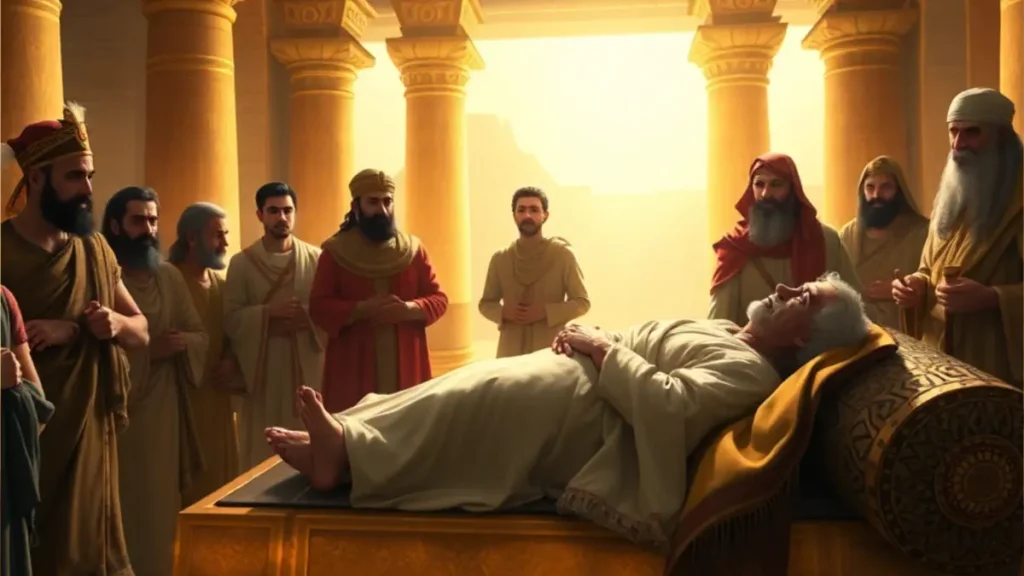
Conclusion
Joseph who was the son of Jacob in the bible lived a very hard life but due to his ability, faith and God’s aid he became very successful. He was pious, kind hearted, loving, a gentleman and wise man. His life teaches us that God will raise the believers in front of those who were the cause of our fall. He also gives us a lesson of love, wisdom, forgiveness, respect and humbleness.
FAQs
Joshua was the successor of Moses who led the Israelites after him.
There are two josephs in the bible. One is the father of Jesus not biologically but was the husband of Mary. The second one was the son of Jacob.
She started to seduce him but when he rejected her offer then she forced him to do wrong activity. After rejection she accused Joseph as her rapist.
Joseph the dreamer was the son of Jacob and the minister of Egypt.
The name of Joshua’s father was Nun.


2 thoughts on “Joseph Who Was The Son of Jacob in The Bible”